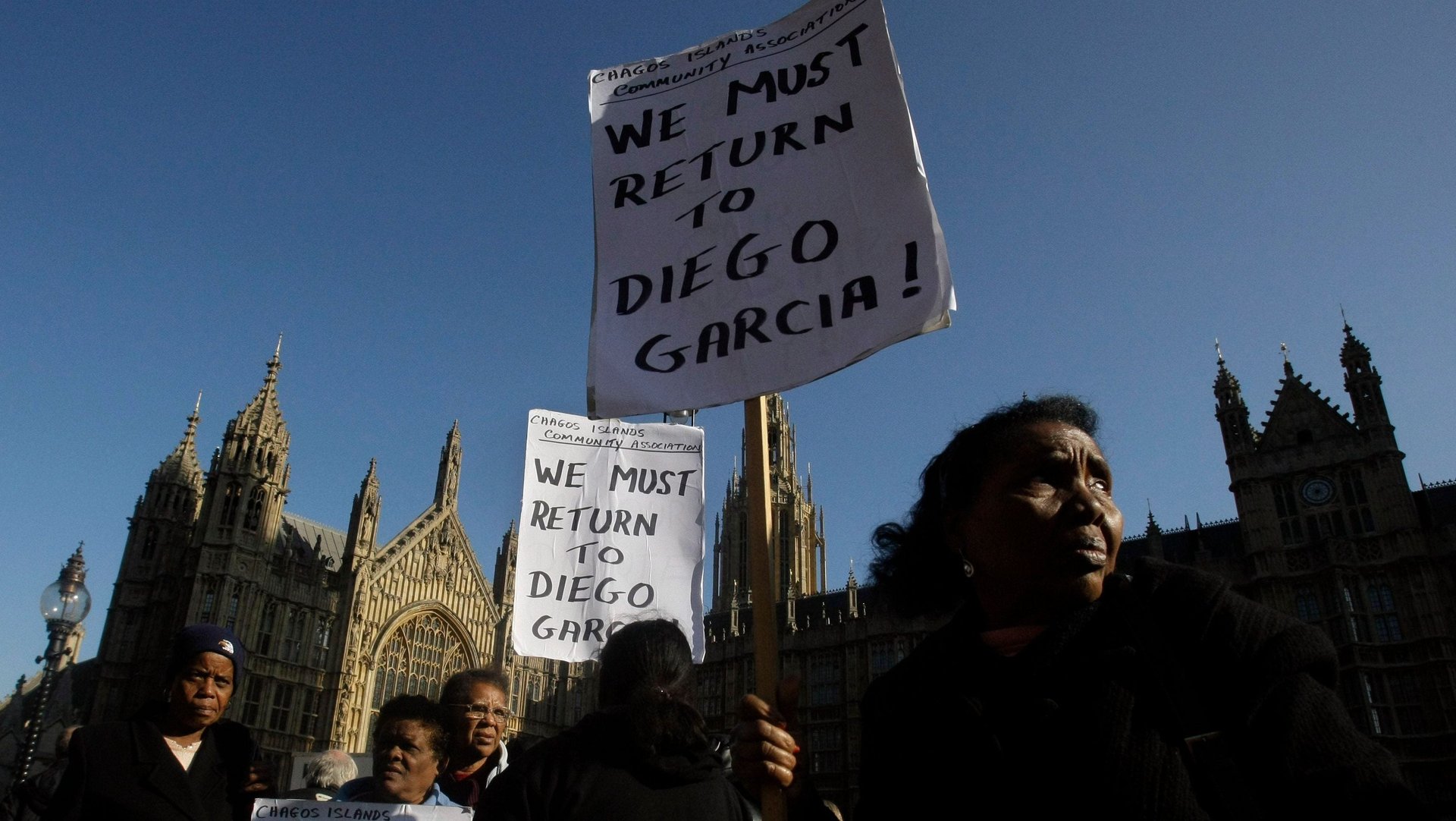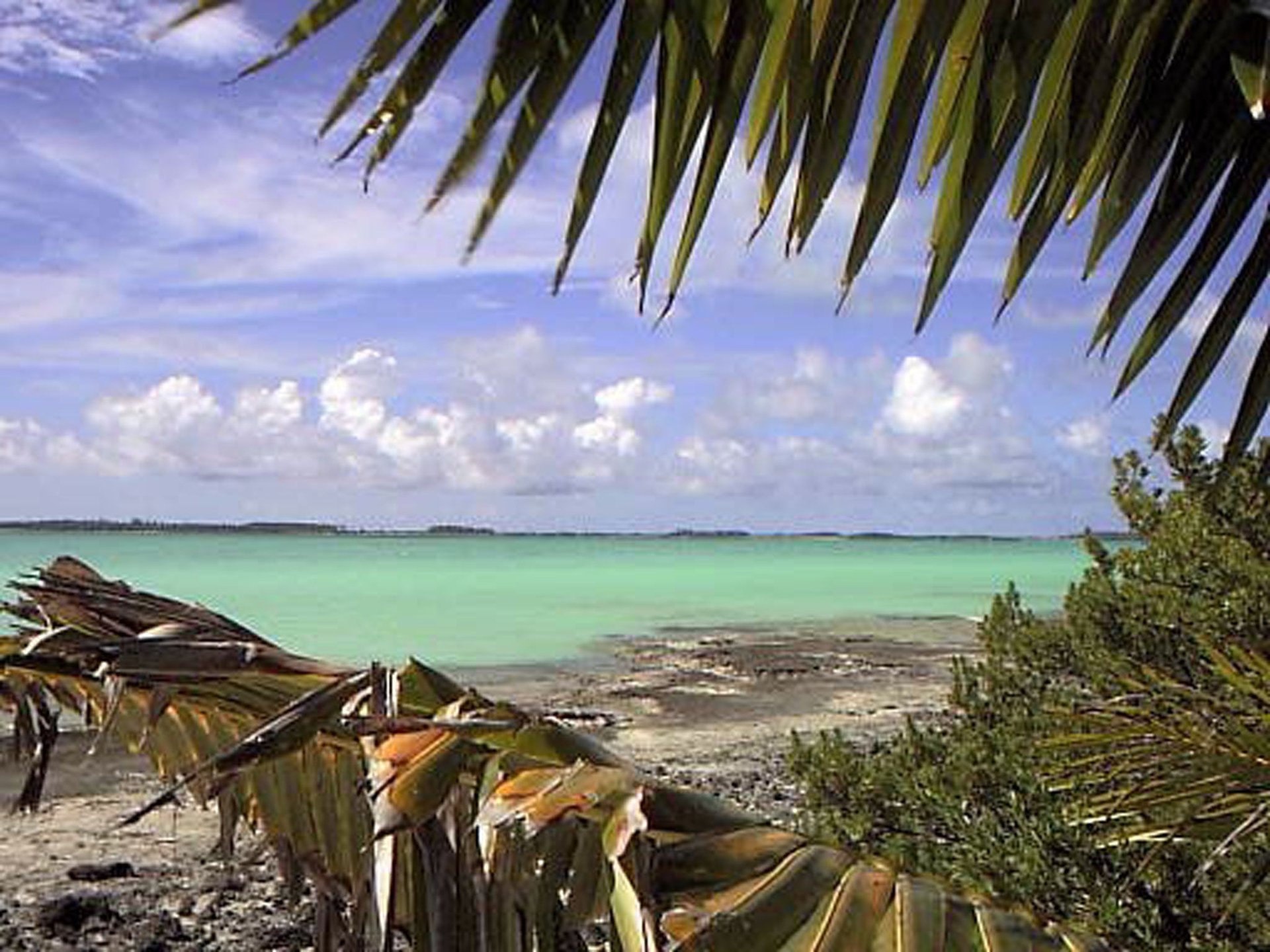Britain will have to give up its last African colony thanks to the UN—and Brexit
Did colonialism end in Africa when the previous colonial powers granted independence? Apparently not, according to the United Nations’ International Court of Justice (ICJ), which has ruled “the process of decolonization of Mauritius was not lawfully completed” and the UK should relinquish the Chagos Archipelago “as rapidly as possible.”


Did colonialism end in Africa when the previous colonial powers granted independence? Apparently not, according to the United Nations’ International Court of Justice (ICJ), which has ruled “the process of decolonization of Mauritius was not lawfully completed” and the UK should relinquish the Chagos Archipelago “as rapidly as possible.”
While the Chagos Islands is probably not well known to most Africans, situated as it is some 1,800 kilometers (1100 miles) from the nearest African nations of Seychelles and Mauritius, this has a been a long-running saga. Back in 1964 while Mauritius was negotiating its independence from the United Kingdom, the United Kingdom had entered into secret talks with the United States of America to acquire the Chagos Archipelago for use as a military base.
The attraction was obvious: the archipelago of over 60 islands is located just 600 kilometers off the coast of the Indian subcontinent mainland and remains a very convenient launch site for military air and sea craft. Without disclosing this interest, the UK formally disaggregated the Chagos Islands from Mauritius during independence negotiations in 1965, paying Mauritius a sum of £3 million. Mauritius was granted independence in 1968.
Between 1967 to 1973, UK then forcibly removed every one of the over 3,000 occupants of the Islands, moving them to the nearest African nations of Seychelles and Mauritius. Declassified correspondence from the time reveal that this was in accordance with the agreement that the UK had reached with the United States, including assurances that there will be “no indigenous population left on the island except seagulls”. The US promptly built a military base on the largest of the atolls, Diego Garcia, which remains in use till today.

The Chagossians have been fighting for their right to return home since their eviction, and Mauritius launched legal proceedings to have the island restated as part of its sovereign control. They scored a major victory in 2017, when the United Nations General Assembly voted that the matter be referred to its principal judicial organ, the ICJ.
The Court’s decision on Feb. 25 unequivocally stated that the UK had not respected the freewill expression of the people of Chagos when assuming control of the archipelago and they should therefore immediately relinquish it.
While the UK’s immediate response has been to refuse to respect the Court’s decision, stating it is not legally binding but advisory, the UK will find itself under immense international pressure to reverse that position. To complicate matters, the US still has a lease on Diego Garcia that does not expire till 2036—indeed, Diego Garcia is the US’s largest military base outside its own shores.
Pravind Jugnauth, the prime minister of Mauritius, hailed a “historic moment”, adding: “Our territorial integrity will now be made complete, and when that occurs, the Chagossians and their descendants will finally be able to return home”. Chagossians and their descendants have since moved all over the world, including to the UK, where they have been caught up in Theresa May’s ‘hostile environment’ for illegal migrants.
Brexit Shadow
Lurking over this whole matter has been the shadow of Brexit. The Chagos issue was referred to the ICJ in 2017 by the UN because most European nations abstained from the vote, a direct consequence of the decision to leave EU. Africans would have been pleasantly surprised at the outcome, being more used to the ICJ’s sister organization the International Criminal Court, which has mainly concentrated prosecutorial efforts on African leaders.
Now desperate to secure trade deals with African countries and India, which retains strong cultural and economic ties with Mauritius, it is unlikely that the UK could afford a lengthy dispute. A negotiated settlement is likely, where the Chagossians could be paid compensation and a gradual return to the other islands in the archipelago, pending a resolution with the US about Diego Garcia.
But who knew that when the Brexit campaigners were voting to ‘take back control of their country’, they were enabling an African island nation half a world away to do exactly that? Another manifestation of the law of unintended consequences.
Sign up to the Quartz Africa Weekly Brief here for news and analysis on African business, tech and innovation in your inbox